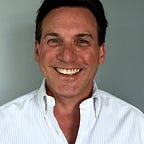There’s Always Someone…
“There’s always someone worse off than you.” This has been the go-to thought when someone was trying to feel better about a situation they found themselves in. The thought goes, “well, at least that hasn’t happened to me,” whatever terrible thing, that, might be. The Cambridge English dictionary defines the term “worse off” as, poorer or in a more difficult situation. We just don’t think that way anymore. We’re much more likely to think, “I can’t believe they have it, and I don’t.” Whatever, it, might be.
Social media and reality shows have given us such a skewed perspective into people’s lives to the point where all we see is the public-facing personas that appear to have it all. We see the trips, hear about the new job, see the perfect families smiling at us from photos in timelines and think what The Talking Heads wrote about:
And you may ask yourself, “Where is that large automobile?”
And you may tell yourself, “This is not my beautiful house”
And you may tell yourself, “This is not my beautiful wife”
What’s in front of us every moment of the day is a broadcast of what we should have, what we need to have and more to the point, what we don’t have.
What we don’t see, except in poorly made commercials making emotional appeals to support people in desperate situations around the world, are people worse off than us. Somewhere in this world of 7.7 billion people, there has to be one person who is worse off than anyone. Imagine the ranking system for that little piece of social triage. Where is that person and what situation would place them in the unenviable position of number one in the world of people who are worse off. But that begs the question of comparing, worse off, to the expression, well off.
In the lexicon of most people, well off, is strictly used as a monetary measure. “Oh, they are very well off,” means only one thing. Wealthy. But worse off seems to be a more universal term for anything that could make you, or that person who holds the number one rank, poorer or in a more difficult situation. That gets us back to social triage. How would we triage for, worse off? How can we determine what makes one person more, worse off, from another person who is also in a situation that makes them, worse off, as well?
In the U.S., we have a large, multi-tiered system of social triage. It can be easy to overlook, ignored, railed at it or dismissed, but there are programs in place at city, county, state and federal levels for our 328 million residents. The list of all the programs to keep American’s from being worse off than they could be is astonishing:
https://en.wikipedia.org/wiki/Social_programs_in_the_United_States
It may appear difficult to keep the monetary part of the equation at bay when discussing, worse off. As callous as it may sound, money does solve problems. The U.S. spends trillions of dollars on social systems for its citizens. So, the social triage calculation for people who are, worse off, must also include a system of leadership (or more importantly, a lack thereof) that is concerned enough for the wellbeing of their citizens to enact the systems that take care of those who are not, well off.
It might be assumed that natural resources would factor into the equation of places where we would find the number one person in the world who is, worse off. Oddly enough, the places with the fewest natural resources cannot be remotely considered a place where we would find our number one ranked person. Switzerland, Taiwan, Japan and Hong Kong make the list of top ten countries with the fewest natural resources. It keeps coming back to money or more specifically, economies and leadership. An article from FocusEconomics on the poorest countries in the world, points out not only the where, but the why of this situation:
Many of the poorest nations in the world are places where issues such as authoritarian regimes, political turmoil, weak financial institutions, inadequate infrastructure and corruption deter foreign investment despite the fact that many of them are immensely rich in natural resources and have a young, growing population.
There is possibly one last factor — and it is said to be the one thing that money can’t buy — happiness…and perhaps hope. Where hope appears, happiness is not far behind. The polar opposite end is where our search would take us. Someplace where there is no hope of things getting better. Taking all of this into account, where are we most likely to find the person who holds the rank of number one in the social triage of, worse off?
If you were hoping to find an answer to this little exercise in this article, I’m afraid you won’t. But it’s worth looking for the answer anyway. If Fortune can research and create a yearly list of the top 100 richest people in the world, someone else should be creating another list to balance it out. The Un-Fortune-ate 100. I’d like to read about the people who make that list a helluva lot more than the people who have it all. Like Bud Fox asked Gordon Gekko in the movie Wall Street, “How many yachts can you waterski behind?” How much is enough?” Who cares…
Once we have both lists, how about a system that puts the top and bottom together? Like big brother and big sister programs. Let’s identify the person at the bottom of the list of, worse off, and pair them up with the person at the top, currently Jeff Bezos, and he works to make their life a little bit better.
Imagine that.
